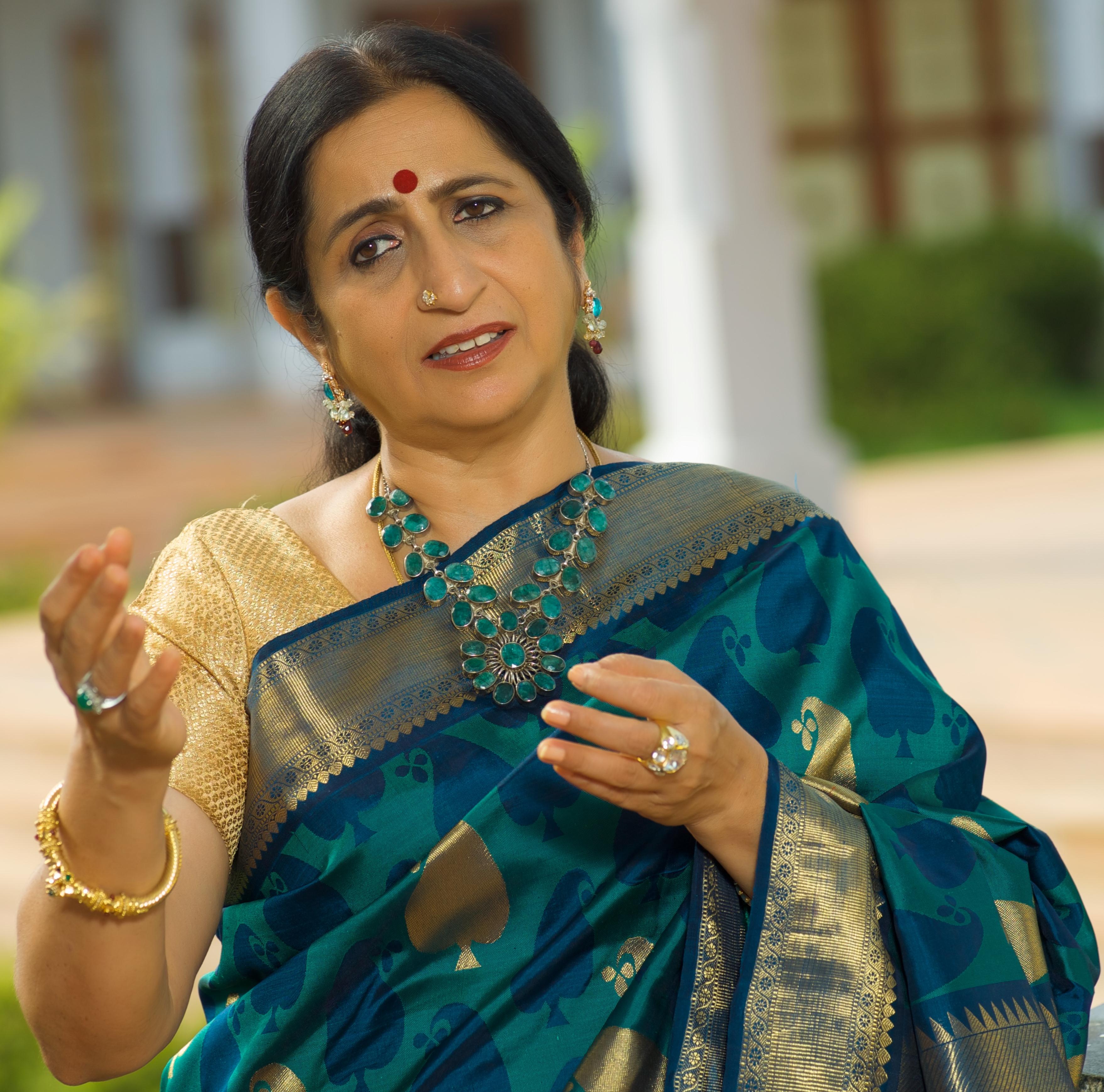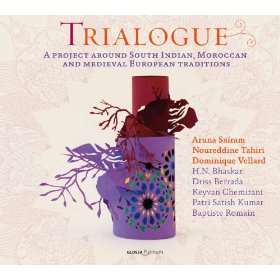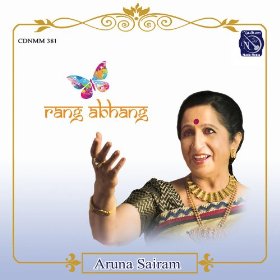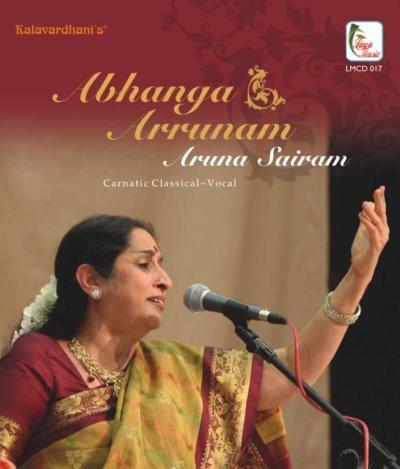Divine Tunes Songs from the soul
-

By Vatsala Vedantam
It was "the season" in Chennai. The musician was concluding her performance when the curtain was abruptly drawn and the lights switched off. The organisers were telling her to switch off too. But, this artiste remained unfazed. She gaily sang "Aadu meyam Kanne, nee pogavenda shonnai" behind the closed screen as if nothing had happened. That was Aruna Sairam who calmly explains: "My father taught me this important lesson in humility. He would remind me before every concert to ask myself why am I singing and for whom am I singing. Nothing else matters."
The audience may be restless. People may arrive late, leave early and walk unconcernedly in and out of the hall during the concert. The organisers may be rude. The arrangements may be crude. "It is our swabhaava," she laughs. And adds: "When there is no ego, these trivial things don't matter because you are singing for something bigger than yourself."
Communion with god
The lesson has shaped her into a musician of remarkable maturity and poise. Like her role model, M S Subbulakshmi, who would have "a soul to soul conversation" with divinity when she sang, Aruna also holds a secret communion with her favourite god in her kutcheris. Her music is sublime. When she sings, one travels along with her to Mathura, Brindavan and all the hoary temple towns in Brajbhoomi "where each experience is so powerful." Aruna feels these experiences have shaped her thoughts and artistic creations. As a child, she was also exposed to the Maharashtrian bhakthi movement - "I could not escape it... it was part of my growing up" - which has again hugely impacted her music.
Talking about influences that have shaped her career, she says, "I had the good fortune to come in contact with the 'greats' who simply walked into my life. Other than my guru, T Brinda, there were these mentors who taught me the nuances of Carnatic music. Whether it was kalpanaswaram or neraval, each one of them imparted little nuggets of wisdom and knowledge... I am sitting here today only because of them..."
You often wonder what makes Aruna's music so exceptional? Is it her rich voice or her down-to-earth style or just her remarkable stage presence? She is an artiste with no pretensions. Her approach to music is childlike. Something that touches the listener because it touches her. She will pause right in the middle of a composition to talk about it and wonder at its power over the listener.
More than a 'kutcheri'
Her concerts are not mere stage performances. They are a continuous dialogue between her and the audience, and the music itself. The result is startling. Here is a musician who is exploring the beauty and complexity of a raaga by joyously carrying her listeners along with her. An Aruna Sairam concert is a thrilling, exciting roller coaster ride to unknown places through uncharted territory. It leaves you breathless, perhaps a little dazed. Like when she suddenly blends a Bharathiyar composition with a Gregorian chant. This kind of experimentation with music will have its share of criticism too.
"Does it bother you when people say your concert is a gimmick?" I ask her. "Or, you simply don't care?" "I do care," she says. "Audience perception comes across to you even if your eyes are closed. And it does matter to an artiste."
After a pause, Sairam adds: "But it does not cripple me. Remember, I am an artiste who was shaped only by criticism."
Aruna's genre is varied. She feels inspired chanting the name of Lord Vithala or singing 18th century Oothukaadu padams. She is equally at home to sing for Tamil isai during the Marghazi season as she is in a festival of world sacred music in Morocco. Her powerful voice can recreate the Kaliya Narthanam in an intricate thillana or transport you to a majestic temple procession through the unusual mallari. Her overpowering voice can bring the house down in a sabha in Chennai. It can also echo in the crypt of a Benedictine monastery somewhere in Germany. Or explode in a jazz convention in the Rocky Mountains of Canada. It can blend easily with the violin, guitar, veena or mandolin - just as it can merge seamlessly with the music of that master of medieval chant, Domonique Vellard or the Sufi vocalist Noureddine Tahiri - or even with that popular Bollywood singer, Shankar Mahadevan. The enigma that is Aruna Sairam is in a class by itself.
Related Albums

Trialogue
Published : 2012
By : Glossa Music
Rang Abhang
Published : 2011
By : Nadham Music Media
Abhanga Arunam
Published : 1994
By : Kalavardhini's
Related Concerts
- Bolava Vitthal - Celebrating Ashadhi Ekadashi An Evening of Abhangs
On : Friday, July 27, 2018

 Photos
Photos